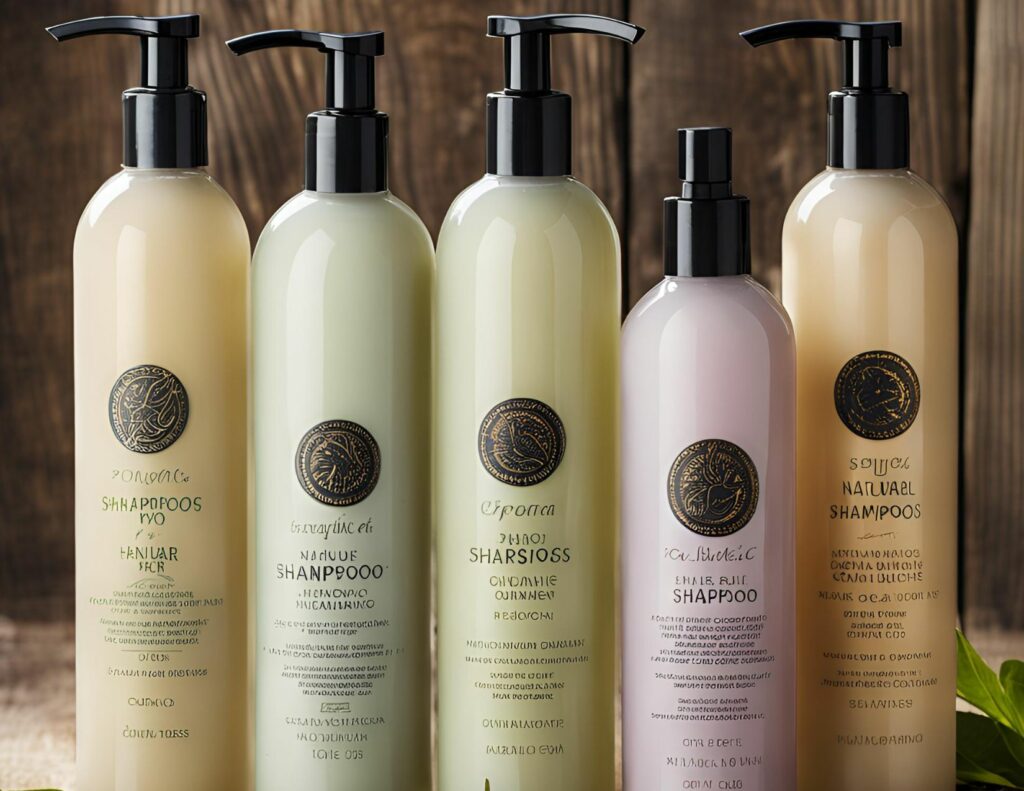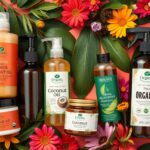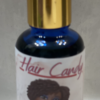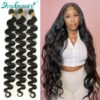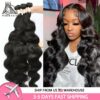Natural And Organic Shampoos For Healthy Hair
When people throw around terms like “natural” and “organic” in hair care, it’s time to stop and break it all down. So, here’s the deal: ‘natural’ products usually come packed with ingredients straight from nature, stuff like plants, essential oils, and minerals. As for ‘organic,’ these go one step further, often with ingredients grown without pesticides or synthetic fertilizers. That’s good news for your hair and the planet!
Ever checked the back of your shampoo bottle? In those natural and organic options, you’re likely to find goodies like aloe vera, coconut oil, and maybe even a splash of lavender oil. These aren’t just slapped on there for show – they’re known for their soothing, hydrating, and sweet-smelling prowess.
So why should you care? Well, making the switch to natural or organic shampoos can be a major boost for both your hair and scalp health. Reduced exposure to harsh chemicals means less chance of irritation or allergic reactions. Plus, since these shampoos often rely on nature’s ingredients, they can better support your scalp’s natural balance.
Basically, choosing natural and organic shampoos isn’t just a trend. It’s a lifestyle choice about going with what feels right, for you and for nature. It means embracing those ingredients that work in harmony with what you’ve already got going on up there.
The Importance of Choosing the Right Shampoo for Your Hair Type

Getting the right shampoo match can feel like striking gold for your hair care routine. Different hair types crave different ingredients, and knowing what works best for yours can save you a ton of hair-related drama.
For example, if you’ve got dry strands that feel like they’ve been on a desert trek, look for shampoos with nourishing oils like argan or coconut. These beauties can help restore moisture and bring your hair back to life. If the oil slick is more your hair type, a formula with ingredients like tea tree or witch hazel might just be your best friend by helping control excess grease.
Curly folks, listen up: you might want to grab something with added hydration power and lightweight oils to keep those curls popping without weighing them down. Fine hair types, on the other hand, often thrive with clear, lightweight shampoos that won’t leave any heavy residue.
Feeling the difference once you’ve got the right shampoo is oh-so-sweet—less frizz, smoother texture, and balanced oil levels. It’s like your hair just knows it’s finally getting what it’s been asking for all along.
Real stories can back this up too. Many people find that after switching to the right natural or organic shampoo, their hair just starts behaving better. The frizz chills out, the shine turns up, and they’re spending way less time fighting tangles.
Finding that perfect match can be a hair care game changer. So, show your locks some love by really tuning into what they need and seek out those natural shampoos that align with those needs!
Ingredients to Look for in Natural Shampoos
Choosing the right shampoo isn’t just about grabbing the pretty bottle with a nice label. It’s all about knowing what’s inside and why those ingredients matter. When we’re talking about natural shampoos, there are a few standout ingredients that you definitely want on your radar.
Argan oil is one of those superstar ingredients. Packed with nutrients like vitamin E, it’s great for moisturizing and nourishing. Your dry, parched hair will thank you. Tea tree oil, on the other hand, is famed for its antimicrobial properties. This makes it ideal for soothing irritated scalps and reducing dandruff. A shampoo with tea tree oil can give your hair a fresh, clean feel and help fight those pesky flakes.
Not all ingredients are friends though. Some, you might want to show the door. Sulfates, for instance, are common in many shampoos but can strip your hair of its natural oils, leaving it dry and brittle. Parabens are another group best avoided. Used as preservatives, they’ve been linked to potential hormonal disruptions.
Navigating shampoo choices gets easier when you’re armed with this knowledge. You’ve got the power to truly understand what you’re putting on your hair and avoid the ingredients that don’t play nice.
Ready to find some great picks? I’ve lined up a curated list of top-rated products, with links to buy them directly from Amazon. Dive in and find your shampoo soulmate: [Shampoo #1 – Amazon Link], [Shampoo #2 – Amazon Link]. The world of natural shampoos is rich with options, so take your time and choose what’s best for your hair’s unique needs.
How to Transition to Natural and Organic Shampoos
Switching up your shampoo game to natural and organic options is like giving your hair care routine a fresh start. But let’s be real – your hair might need a little adjustment period.
First, know that it’s normal for your hair to go through a detox phase. You might experience more oiliness or dryness initially, and that’s just your scalp rebalancing without synthetic chemicals kicking around.
Be patient as your hair gets used to its new, kinder-to-nature routine. Consistency is key. Stick with it for a few weeks and pay attention to how your hair responds.
A tip that makes life easier: gradually introduce natural shampoos into your routine. Maybe start by using them every other wash, slowly shifting to full use. This helps your hair and scalp adjust more smoothly.
Don’t shy away from using nourishing conditioners or treatments in the meantime to help your locks stay hydrated and manageable during the switch.
Countless people who transition this way find their hair ends up not just looking healthier but feeling healthier too. Less frizz, more shine, and an overall happier scalp make the journey worthwhile.
Celebrate small victories along the way, like noticing your hair’s improved texture or enjoying the natural scents of your new shampoo.
Evaluating the Efficacy and Safety of Organic Shampoos
When it comes to picking out organic shampoos, reading those product labels is crucial. Ever seen those symbols and certifications on the bottle? They ensure you’re really getting what you pay for—authentic organic products, not just fancy wording.
Look out for certifications from well-known bodies like USDA Organic or EcoCert. These stamps mean the product meets rigorous standards, so your shampoo genuinely monitors what’s inside.
Expert opinions matter too. Dermatologists and hair care specialists often have valuable insights on ingredient efficacy and safety. They can guide you to make sure the product isn’t just safe but also effective for your specific hair needs.
Independent reviews play a big role here. Websites with customer reviews, especially verified buyer feedback on platforms like Amazon, can provide a real-world look into how these shampoos perform. Reading others’ experiences gives you a clearer picture of what you can expect from the shampoo.
Comparing products is definitely worth your time. Taking two or three of these shampoos head-to-head helps you see which one stands out. You’ll often find that organic shampoos have noticeable benefits, like improved hair health and sustainable production processes.
You can check out product comparisons through links such as [Product A – Amazon Link] and [Product B – Amazon Link], where you’ll find detailed reviews and ratings to help you make an informed decision.
Sustainable and Ethical Considerations in Hair Care Choices
Caring for your hair shouldn’t come at the cost of the planet, and that’s where sustainable and ethical practices in hair care come into play. Choosing shampoos from brands that prioritize these values means you’re making a positive impact far beyond your shower.
Sustainability in hair care involves choosing products from companies committed to reducing their ecological footprint. This could mean using renewable resources in their manufacturing processes or opting for biodegradable or recyclable packaging.
Ethical considerations go hand in hand. It’s about supporting brands that practice fair trade or ensure their supply chains are free from forced or exploitative labor. Basically, it’s about aligning with products and companies that respect both people and the environment.
In seeking out these options, look for brands that are transparent about their production methods and ingredient sourcing. Brands openly communicating their sustainability efforts often have certifications like Fair Trade or B Corporation status.
Several brands available on Amazon align with these values, providing quality products that benefit you and the world around you. Consider products like [Product C – Amazon Link] or [Product D – Amazon Link], which proudly highlight their commitment to these principles. Exploring these options isn’t just about great hair days—it’s about rocking a planet-friendly lifestyle too.
